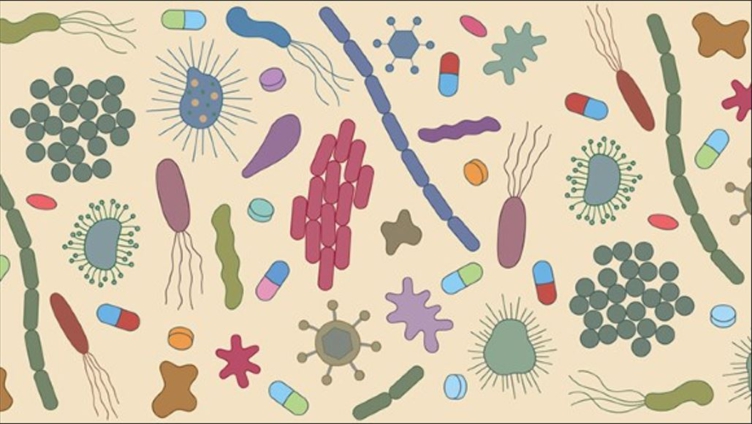Data submitted to the World Organization for Animal Health (WOAH, founded as OIE) indicates, the usage of antimicrobial in animals has decreased by 27% between 2016 and 2018 across the world.
According to WOAH, similar progress has been made in the use of antibiotics to promote growth, and in approximately 70% of the reporting countries, the use of antibiotics to promote growth in healthy animals is no longer a practice.
In a world that is more globalized and connected than ever before, Dr. Monique Eloit, director general of the World Organization for Animal Health, says, "this is a positive step forward as it shows that a growing number of farmers, animal owners and animal health professionals worldwide are adapting their practices to use antimicrobials more prudently."
Dr. Eloit continues by saying that while these initiatives help safeguard human life, much more must be done to maintain human therapeutic choices and stop the spread of infectious diseases.
One of humanity's greatest triumphs, antibiotics and other antimicrobial medications cleared the door for better living circumstances for both people and animals. However, many of these life-saving medications are becoming less effective against a wide range of microorganisms. Scientists describe this phenomenon of less effectiveness of antibiotics against microbes as Antimicrobial resistance.
This is partially a natural process, but can be significantly sped up by the overuse or improper use of antibiotics, which puts pressure on bacteria to develop resistance features in order to survive and prosper.
According to scientists, These "superbugs" can then spread through soil, water, and air, infecting any living things along the way, regardless of species.
Experts have long expressed concern about the threat that antimicrobial resistance poses to future generations and the need to step up efforts to combat it.
According to a landmark study, titled, "Global burden of bacterial antimicrobial resistance in 2019: a systematic analysis," that was published in The Lancet, about 1.27 million people died in 2019 as a result of antibiotic drug-resistant bacteria.
According to WOAH, gathering and analyzing data on antimicrobial usage is essential to comprehending the complex and evolving growing risk. WOAH therefore started collecting data annually in 2015 in order to track changes in the animal health industry.
WOAH says Members have been consistently and progressively more involved in the endeavor, which has strengthened their ability to compile and offer more thorough information over time. About 160 countries took part in the most recent cycle of data gathering, and some of them also made their data available on national platforms. It is now the most complete collection of data on the usage of antibiotics in animals.
“As the proportion of pathogens resistant to antimicrobials rises, the efforts of the scientific community to accelerate the development of new antibiotics and drugs to tackle ‘superbugs’ should redouble”, said Dr Javier Yugueros-Marcos, Head of the Antimicrobial Resistance and Veterinary Products Department of the World Organisation for Animal Health.
According to him, nations should encourage the use of alternatives like vaccines and quick fixes like hand-washing with soap and water and changing out of dirty clothes and boots before handling or treating animals. They should also increase the use of alternatives like vaccines.
WOAH is more concerned with having access to solid and trustworthy data since it enables decision-makers to pinpoint precisely where local action is most urgently needed, supporting the global response to antimicrobial resistance.
“We are on the right track in the animal sector – we must now seize this momentum and continue to use antimicrobials prudently if we want to preserve their efficacy for future generations," Dr Eloit warns.
Latest Stories
-
We must never make the mistake of romanticising the past – Lumumba
51 seconds -
Tarkwa Nsuaem: W/Regional Minister storms Bonsar with security personnel as illegal mining intensifies
2 minutes -
Global Execution Surge casts shadow over Africa’s Capital Punishment Debate
9 minutes -
Prioritising mental health for security officers key to effective conflict resolution- Dr Doke
17 minutes -
Ghana Golf Getaway: Tee off in Ghana’s rich culture
19 minutes -
Wendy Shay to sponsor viral fan’s education from class 5 to university in heartfelt gesture
26 minutes -
Ghana launches $7m Circular Economy Project to tackle plastic waste
31 minutes -
9 schools qualify to semi-finals of 2025 Luv FM Primary Schools Quiz
35 minutes -
Degrees don’t equal competence – Koranteng Pipim
36 minutes -
‘Our classrooms are graveyards for curiosity’ – Koranteng Pipim
40 minutes -
How Dr. Bawumia changed the conversation about Gold in Ghana
55 minutes -
Bawku crisis: Mahama confirms Otumfuo’s peace mediation to resume next week
57 minutes -
UK announces further £450m military support to Ukraine
1 hour -
‘Nobody is being intimidated’ – Nana Yaa Jantuah on NIB’s attempted arrest of Ntim Fordjour
1 hour -
We don’t have time to engage in games of smoke and mirrors – Mahama to critics amid suspicious flights saga
1 hour

